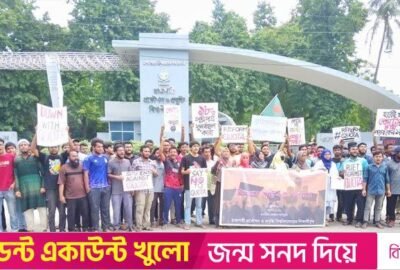We start with adulteration. For example, giving false information in birth registration, giving false information while taking a job. For this we need to bring social and mental changes. It is not possible to ensure safe food if adulteration cannot be prevented. It will not be possible to ensure safe food if we do not look at the production level.’
Dhaka Divisional Commissioner said these things in the speech of the chief guest at the seminar titled ‘Importance of safe food system in eliminating food-related illnesses and health hazards’ at Biam Foundation in the capital on Tuesday (June 11) morning. Sabirul Islam. The seminar was organized under the initiative of Bangladesh Safe Food Authority (BFSA).
BFSA chairman Zakaria chaired the seminar and presented the keynote speech of Dhaka University Institute of Health Economics Professor Dr. Syed Abdul Hamid, BFSA member Abu Noor gave a welcome speech. Shamsuzzaman.
Md. Sabirul Islam said, if we ourselves do not follow ethics then food cannot be made safe. Urea fertilizers are being applied to crops, additional fertilizers and pesticides are being used in agriculture. Working with food safety authorities alone will not make food safe. The difference between food and safe food, the importance of safe food, food adulteration and use of dyes, foodborne diseases, food hazards, the importance of safe food management, trends and challenges of safe food in Bangladesh, etc. were discussed by Professor Dr. Syed Abdul Hamid.
The difference between food and safe food, the importance of safe food, food adulteration and use of dyes, foodborne diseases, food hazards, the importance of safe food management, trends and challenges of safe food in Bangladesh, etc. were discussed by Professor Dr. Syed Abdul Hamid.
He said, everyone in the country should work to ensure safe food. Safe food manpower is less, so to work at the upazila level, the manpower of other ministries and departments of the government must be used.
In the president’s speech, BFSA Chairman Zakaria said that plastic is being used in food management. Research should be done on how safe the food is in these processes. There is no data on how many people get sick from foodborne illness. 10 percent of people in the world are sick. But most people get sick in Africa. And in South Asia, this rate is second in the world. As Bangladesh is a South Asian country, we are at the second level in terms of food borne diseases. However, we do not have any survey or research of our own in this regard. When we asked for information about this in various hospitals, they said that there is no information about this. But ICDDRB they have given some information they are processing.
Representatives of various government departments, food establishments and civil society were present in the event.
NH/MAH/






